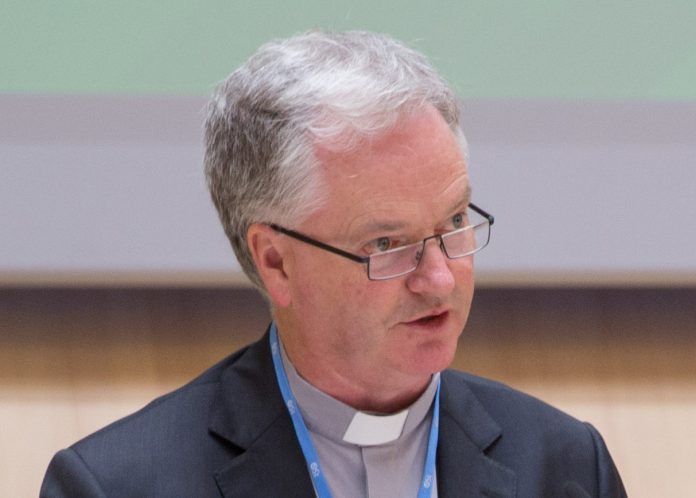A Vatican official introduced what could be a template on how Christians respond to disinformation and the proliferation of “fake news.”
Bishop Paul Tighe, Secretary of the Pontifical Council of Culture in the Vatican, said Christians need to critically discern what digital and social media offer based on Christ and His teaching.
He urged the faithful to follow St. Paul’s example of using the Gospel as the template for discerning the good and bad in culture, adding that love should be the driving force of online engagements and not simply the desire “to achieve.”
Bishop Tighe talked of “truth and discipleship” in an online forum on July 2.
He said “fake news” spread because netizens are often only receptive to information that reinforces their world views and beliefs.
The bishop said that the attitude usually leads to polarization, social media users canceling out individuals even groups with opposing views, and people getting “trapped in (just) one way of seeing things.”
He said the anatomy of fake news includes the “selling of already confirmed world views,” “polarization of societies,” and “distraction of people’s attention from serious issues.”
The latter comes as a result of trivialization, escapism, as well as simplification of the impacts or consequences of important events.
Digital and social media offer a barrage of information that often “discourages people from being too serious,” the bishop said.
The volume of available information “overwhelms our capacity to judge and reflect” and directs us to merely “look (for) simplicity and directness.”
This is often what makes us vulnerable to manipulation and deception, he added.
He said “fake news” also brings forth a “disruption of our good habits” not just because of the “speed and volume” by which information is conveyed but also because of its highly “emotive, overwhelming,” as well as crafty packaging.
Bishop Tighe cited the need for “guard rails” or state laws and regulations that enforce ethical social media use.
The Vatican official called for self-regulation of individuals, companies as well as professionals present in the online sphere.
For the Catholic Church, he said, “We have to encourage people to look at their own agency,” which in Pope Francis’ words means “good communication.” At the end of the day, Bishop Tighe said everyone has to strive to communicate effectively and ethically.
He said the Church needs to encourage everybody “to be present in social media” because both offline and online worlds are now “blended.”
People of faith then need to be responsible in the way they use their freedom in offline and online communications, said the bishop.









